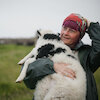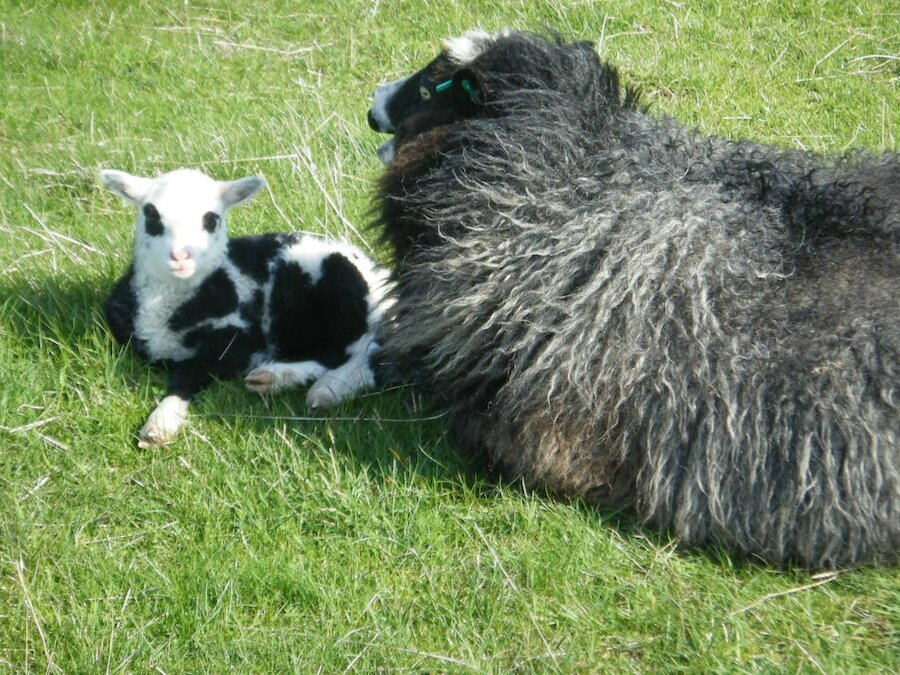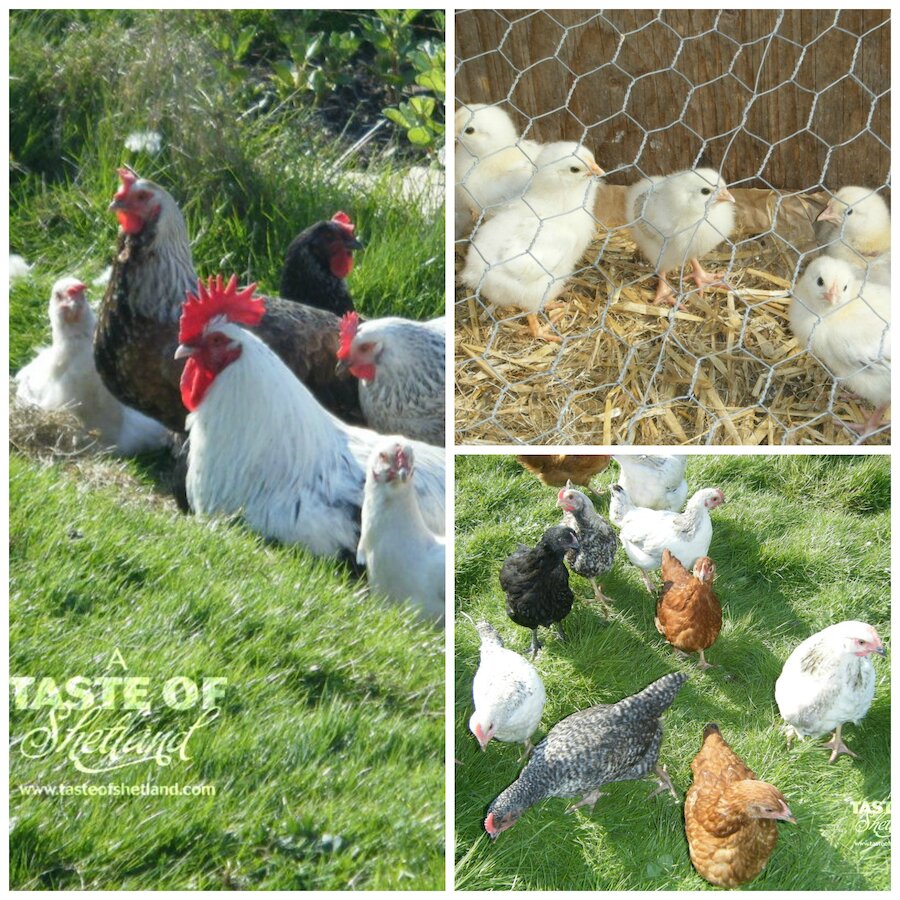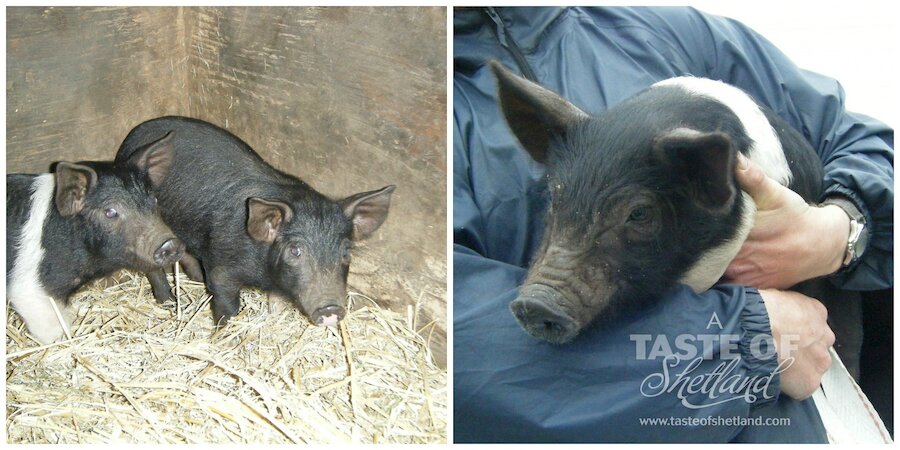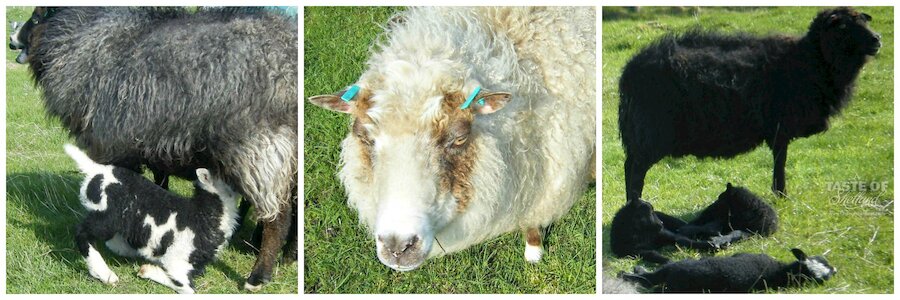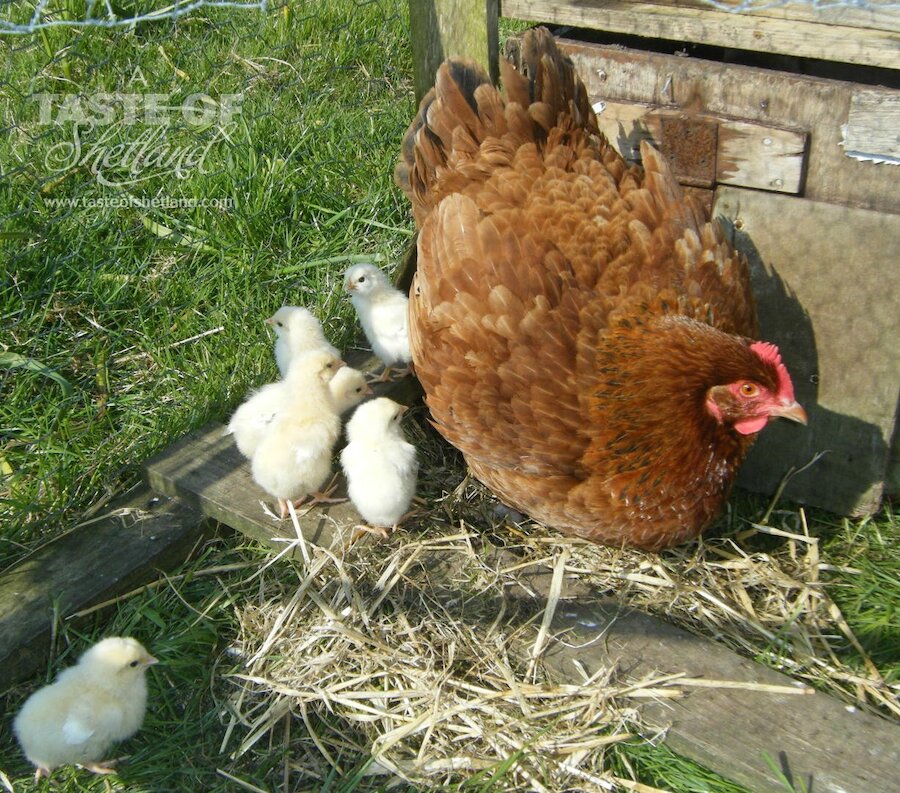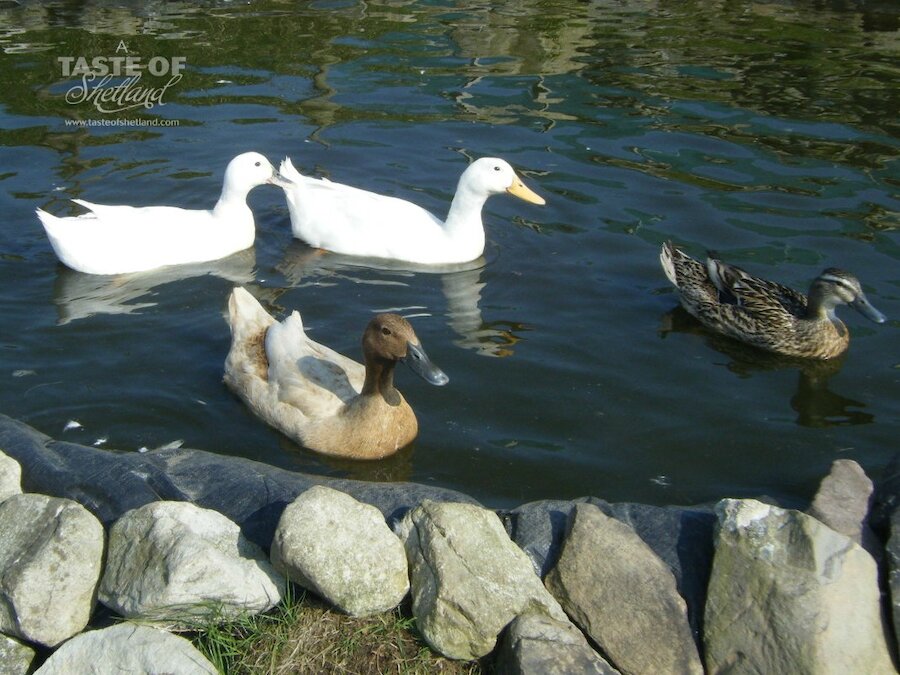We try hard at Turriefield not to buy into globalised meat production. If we don't produce it, or get it form a local source, we do without. It has been a long time since we had any salami because we've not yet managed to create the right conditions to cure the sausage before it goes mouldy (our atmosphere is too damp). Eating out can be difficult, but living so far out of town and with so much to do we don't go out much! For many years we have made our own 'takeaways' and the fact that they taste so much better than the bought ones makes that choice easier.
It has taken Alan and I nearly 20 years to be able to produce so much of our own food and give up other things. But there are some things we are just not prepared to give up, like hot chocolate for instance. We use Shetland milk but it is debatable how sustainable, or climate change friendly the cocoa we use, or the soya milk I need, is. Even though it is organic it is shipped across the world. It's all about the choices any of us make, how much we'll give up and how far we're prepared to go. We choose to eat meat partly because we enjoy it and partly because we would have to buy in other protein if we didn't. Lentils, soya protein, quorn all come from outside Britain and often further afield than Europe. We have eggs, loads of eggs, but there only so many ways you can eat eggs before I get bored. Locally produced cheese is good, but I'm dairy intolerant so that's out. We make choices that suit us and our lifestyle, but continue to look for ways in which we can reduce our food related carbon emissions.
Choices and making changes with buying and eating food is not easy in a society that is set up for fast food, consumerism and profit. Whenever we run our Carbon Classroom courses or talk to people about what we do, we stress that the important thing is to find out more about food production. There should be no judgements on the choices people make, just encouragement and support to learn about the bigger picture. Once you have the information what you choose to do is up to you. Even small changes with your buying and eating choices are effective. Small changes by many folk can add up to a big difference. Then quite often, you find you want to do more.
* Meat , A Benign Extravagance. Simon Fairlie, Permanent Publications, Hyden House Ltd. East Meon. 2010.
